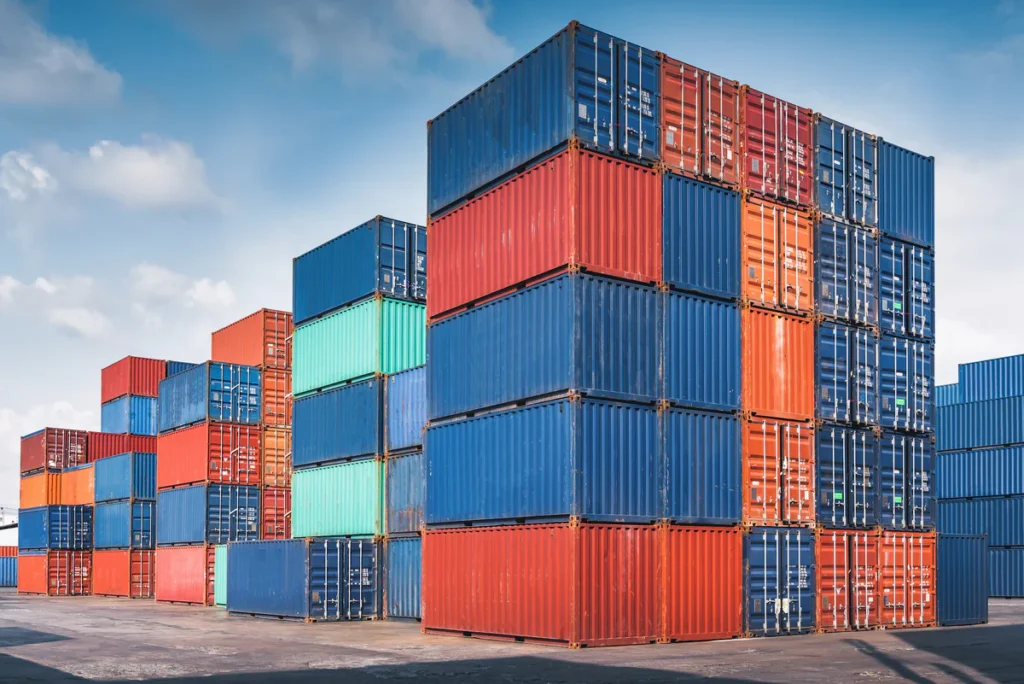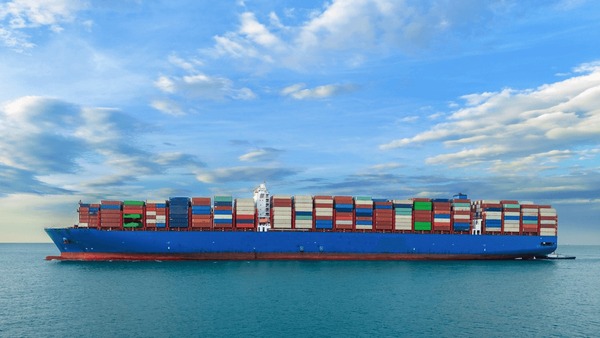- By TOP CHINA FREIGHT
- October 9, 2025
- Shipping
Table of Contents
Container shipping China to Germany plays a vital role in global trade, connecting Asia’s manufacturing power with Europe’s industrial and consumer markets. For importers, understanding the process—including costs, transit times, and logistics strategies—is essential to reduce expenses and ensure timely delivery. This guide breaks down every key factor you need to know before booking your next container shipment, providing actionable insights to streamline your supply chain.

What Are the Main Shipping Methods from China to Germany?




There are four primary methods for moving containers from China to Germany: sea freight, rail freight, air freight, and express courier services. Each method has distinct advantages depending on your cargo type, urgency, and budget.
| Shipping Method | Transit Time | Cost (per 20ft) | Best For | Pros | Cons |
|---|---|---|---|---|---|
| Sea Freight | 30–40 days | $1,500–$3,000 | Bulk cargo | Cheapest for large loads | Long transit time |
| Rail Freight | 15–20 days | $3,000–$4,500 | Medium volumes | Faster than sea | Slightly higher cost |
| Air Freight | 5–7 days | $7,000+ | Urgent or light goods | Fastest | Very expensive |
| Express Courier | 3–7 days | $10,000+ | Small parcels, high-priority shipments | Fast door-to-door, easy customs | Very costly, limited volume |
For most importers, sea freight is the most cost-effective option for full container loads, while rail freight balances speed and cost for medium-sized shipments. Air freight suits urgent or high-value items, and express services are ideal for critical small shipments where rapid delivery and convenience outweigh cost.
How Long Does Container Shipping from China to Germany Take?
Transit times vary depending on the port of departure, shipping mode, and route chosen.
| Route | Mode | Average Transit Time |
|---|---|---|
| Shanghai – Hamburg | Sea | 30–35 days |
| Ningbo – Bremerhaven | Sea | 33–40 days |
| Chengdu – Duisburg | Rail | 15–18 days |
| Xi’an – Hamburg | Rail | 16–20 days |
| Beijing – Frankfurt | Air | 5–7 days |
| Shanghai – Munich | Express | 3–7 days |
Delays can occur due to customs inspections, port congestion, or extreme weather. Using major ports with frequent sailings and experienced freight forwarders can mitigate these risks. Moreover, planning shipments with buffer time helps prevent supply chain disruptions.
What Are the Major Ports for China–Germany Container Shipping?
Main Chinese Ports
- Shanghai Port – Largest container hub in China, offering wide global connectivity.
- Shenzhen (Yantian, Shekou) – Preferred for South China shipments, especially electronics and textiles.
- Ningbo-Zhoushan Port – Ideal for East China manufacturers; high efficiency and frequent sailings.
- Qingdao and Tianjin – Convenient for North China exporters.
Major German Ports
- Hamburg – Germany’s biggest seaport and Europe’s logistics hub; well-suited for large containers.
- Bremerhaven – Specialized in transshipment and container handling.
- Duisburg (Inland Rail Hub) – Key rail terminal for direct shipments from China.
Choosing high-frequency ports reduces delays and can save up to 10–15% on logistics costs due to competitive rates.
How Much Does It Cost to Ship a Container from China to Germany?

Costs depend on container size, shipping mode, cargo type, and market conditions.
| Container Type | Sea Freight Cost | Rail Freight Cost | Air Freight Cost | Capacity |
|---|---|---|---|---|
| 20ft Container | $1,500–$3,000 | $3,000–$4,500 | $7,000+ | 25–28 m³ |
| 40ft Container | $2,800–$4,500 | $4,500–$6,000 | $12,000+ | 55–58 m³ |
| 40ft HQ | $3,000–$4,800 | $4,700–$6,300 | $13,000+ | 68 m³ |
Additional costs may include:
- Customs clearance fees: €100–€250
- Port handling charges
- Insurance (1–3% of cargo value)
- Delivery to warehouse (door-to-door service)
Rates fluctuate monthly due to fuel costs, market demand, and seasonal surcharges. Comparing multiple freight forwarders and negotiating terms can save significant amounts, especially for frequent shippers.
What Documents Are Needed for Container Shipping?

Proper documentation ensures smooth customs clearance. Essential documents include:
| Document | Purpose |
|---|---|
| Bill of Lading (B/L) | Legal proof of shipment |
| Commercial Invoice | Declares value of goods |
| Packing List | Shows contents and packaging |
| Certificate of Origin | Verifies product origin |
| Import License (if applicable) | Required for regulated products |
| Insurance Certificate | Protects cargo during transit |
Incorrect documentation is a leading cause of shipment delays. Using an experienced freight forwarder ensures all paperwork is complete and compliant with EU regulations.
What Are the Advantages of Rail Container Shipping to Germany?
15–20 days compared to 30–40 days by sea
Lower than air freight, competitive with sea for smaller volumes
Less affected by maritime congestion
Reduced CO₂ emissions
How to Choose the Right Freight Forwarder in China?
A reliable China freight forwarder can streamline your shipping process and save costs. Consider:
- Experience with EU imports and customs
- Transparent pricing with no hidden fees
- Tracking systems for real-time updates
- Flexible logistics solutions (FCL, LCL, door-to-door)
Additionally, working with a forwarder familiar with both sea and rail options allows you to select the most efficient route for your cargo and budget.
Case Study: FCL Shipping from Shanghai to Hamburg

A German electronics distributor shipped five 40ft containers from Shanghai to Hamburg:
- Mode: Sea freight (FCL)
- Transit time: 32 days
- Total cost: $19,000 (including handling and insurance)
- Outcome: Arrived 3 days ahead of schedule due to efficient port coordination
Lesson learned: Using an experienced forwarder maximized container utilization and avoided unnecessary delays, saving both time and cost.
How to Reduce Container Shipping Costs from China to Germany?

Tips for cost savings:
- Ship during off-peak seasons (avoid Jan–Feb and Sep–Dec).
- Consolidate shipments to maximize container capacity.
- Compare quotes from multiple forwarders.
- Use major ports with frequent sailings (Shanghai, Ningbo).
- Negotiate Incoterms: FOB allows more control over shipping.
- Forecast inventory to avoid emergency air shipments.
- Consider rail freight for medium-sized, time-sensitive shipments.
These strategies can reduce annual logistics costs by 15–20%.
What Customs Duties Apply When Shipping from China to Germany?
Germany applies EU customs regulations. Importers are responsible for:
- Customs duty: 0–12% depending on HS code
- Import VAT: 19% (refundable for registered businesses)
Accurate HS code classification ensures correct duty calculation and avoids compliance issues. Consulting a freight forwarder or customs broker can prevent costly mistakes.
Conclusion
Container shipping China to Germany is essential for global trade efficiency. By understanding shipping options, costs, transit times, and customs procedures, importers can optimize supply chains and maintain competitive pricing. Choosing the right mode—sea, rail, air, or express—depends on your cargo, timeline, and budget. Strategic planning, proper documentation, and a reliable freight partner ensure smooth, timely deliveries.
Need a Shipping Quote?
Click below to get a free, no-obligation quote from TJ China Freight.
We’ll respond within 24 hours with the best shipping options for your cargo.

FAQ
Q1:How do freight forwarder reps save money for importers?
By negotiating bulk rates, consolidating cargo, and choosing cost-effective shipping modes to reduce freight and storage expenses.
Q2:Can freight forwarder reps handle both small and large shipments?
Yes, they manage both LCL (small shipments) and FCL (full containers), offering flexibility for businesses of all sizes.
Q3:What industries benefit most from using China freight forwarder reps?
Electronics, textiles, furniture, machinery, and consumer goods benefit most due to high-volume shipments and customs requirements.
Q4:Do freight forwarder reps provide insurance options?
Yes, they offer cargo insurance to protect goods against loss, damage, or theft during international transit.
Q5:What should I check before hiring a freight forwarder rep in China?
Check experience, network, transparency, references, and licenses to ensure reliable service.
